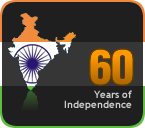Continued from previous post
The wedding day started with the nadaswaram music, waking up everyone, not only the wedding families, but everyone in the whole locality.
The wedding day, an important day in everyone’s life, meant for my mother, an eight year old girl, getting up very early in the morning, long before dawn. She was woken up and taken to the river, along with her friends, all eight or nine year old ones for a ceremonial bath. A few elderly women relatives who accompanied the young girls carried with them all that was needed to dress up the bride at the river bank itself. She was given a new chittadai ( a long piece of cloth like a short sari to wrap round the body with one end over the shoulder), decked with ornaments, had her hair plaited and decorated with gold decoration and fresh flowers. The bride, along with her friends also dressed in their finery, were taken to the temple.
After offering prayers, they walked back home led by the nadaswaram players. On the way back she was made to stop in front of every house, where she was welcomed with aarathi by the elderly housewives and given thamboolam. On reaching home, they were treated to a breakfast of pongal, (preparation of rice and pasi paruppu (Moong dal) tempered with salt, pepper, curry leaves and ginger. This was known as 'Thozhi Pongal'.
I remember enjoying this at my sister Sarada’s wedding. We were then living in Trivandrum city, away from the river. So we just bathed at home, went to the nearby temple and offered prayers, and walked back home. On the way we were stopped at a few houses, and my sister was welcomed with aarathi and thamboolam. Slowly this ritual became obsolete.
The bridegroom on his part had to perform the vritham on the wedding morning – the process of changing from a bachelor to a householder (grihasthan). In those days the bridegroom’s party included their own family priest. This priest would conduct the vritham, which was performed in the same house where the bridegroom’s party was staying.
At the same time the ‘kappu kattal’ ceremony for the bride was done at the pandal, by her parents. After doing a pooja to Lord Vigneswara and other gods, praying for the long life of the bride and the groom, the father, helped by the mother, ties the ‘kaappu’, a yellow sacred thread blessed by the pooja, round the right wrist of the bride.
At both these functions aritual called the ‘paligai thelikarathu’ was also performed. Soaked whole grains – nava danyam – were placed in small palm sized earthen pots. During the vritham and the kaappu kattal, one of the rites was five sumangalis (from both set of families) were asked to drops of water with milk and honey added using the darba grass in all the five pots. This rite was done on all four days of the wedding. On the fifth day, sprouts shot up from the grains – these were taken in procession by the same five ladies to the river and allowed to float away. Later on in cities, where there are no rivers close by, the sprouts were thrown into the wells.
The vratham over, and the boy ready for grihasthrasmam, waited to get married. Seeing no chance of an early marriage, he decided to become a sanyasi and set forth on a journey by foot to Kasi, armed with an umbrella, a palm leaf fan, a walking stick and a copy of the Upanishads( all supplied by the bride’s parents). A pair of footwear was added to this later. The bride’s father stopped him on the way and promised him his daughter in marriage. The kasi yathirai was abandoned, and old relatives of the bridegroom took possession of the fan, umbrella and walking stick. He was brought back to the pandal where the bride was waiting.
This ceremony is still conducted at weddings.
More to come. .
Subscribe to:
Post Comments (Atom)









3 comments:
I didn't know about the blindfold bit!
What is the groom blindfolded against, I wonder, periamme?!
Is it a "see no evil" type of thing, or "see no temptation" kind of moment?!
The pictures are just priceless, Maiji.
I am really loving this series! I hope it never ends!
having lived in mylapore it gave me nostalgia to remember all the kasi yatras i saw as a child in neighbours house weddings where we used to be part of everything
Post a Comment